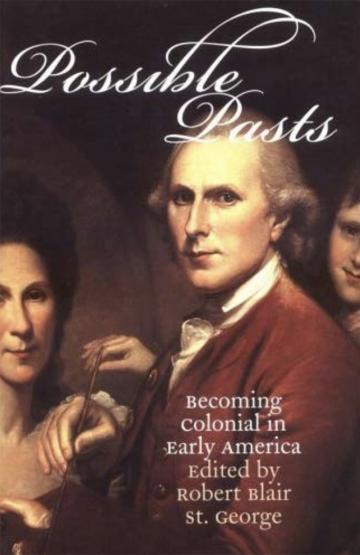Possible Pasts: Becoming Colonial in Early America

Robert St. George
2000
Cornell University Press
Possible Pasts represents a landmark in early American studies, bringing to that field the theoretical richness and innovative potential of the scholarship on colonial discourse and postcolonial theory. Drawing on the methods and interpretive insights of history, anthropology, history of art, folklore, and textual analysis, its authors explore the cultural processes by which individuals and societies become colonial.
Rather than define early America in terms of conventional geographical, chronological, or subdisciplinary boundaries, their essays span landscapes from New England to Peru, time periods from the sixteenth to the mid-nineteenth century, and topics from religion to race and novels to nationalism. In his introduction Robert Blair St. George offers an overview of the genealogy of ideas and key terms appearing in the book.
Part I, "Interrogating America," then challenges readers to rethink the meaning of "early America" and its relation to postcolonial theory. In Part II, "Translation and Transculturation," essays explore how both Europeans and native peoples viewed such concepts as dissent, witchcraft, family piety, and race. The construction of individual identity and agency in Philadelphia is the focus of Part III, "Shaping Subjectivities." Finally, Part IV, "Oral Performance and Personal Power," considers the ways in which political authority and gendered resistance were established in early America.
